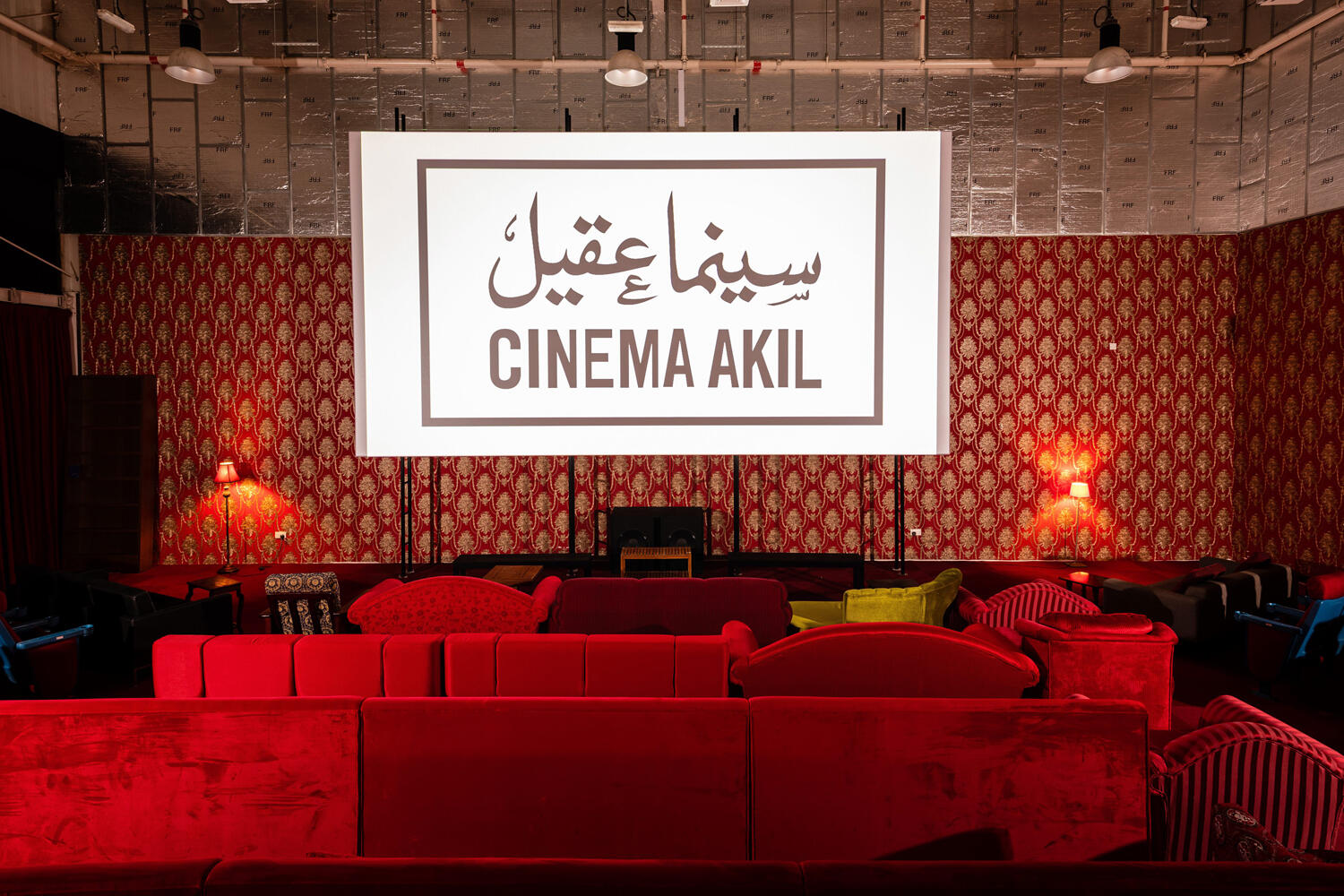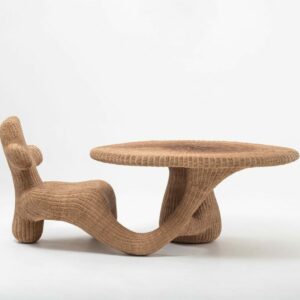Tucked away in the pulsating epicenter of Dubai’s cultural milieu, Alserkal Avenue, Cinema Akil has been almost single-handedly transforming the landscape of independent cinema in the Middle East. The brainchild of cinephile Butheina Kazim, Cinema Akil aims to provide a platform for independent filmmakers to showcase their cinematic masterpieces to audiences who may not have the opportunity to engage with such stories through a conventional cinematic platform.
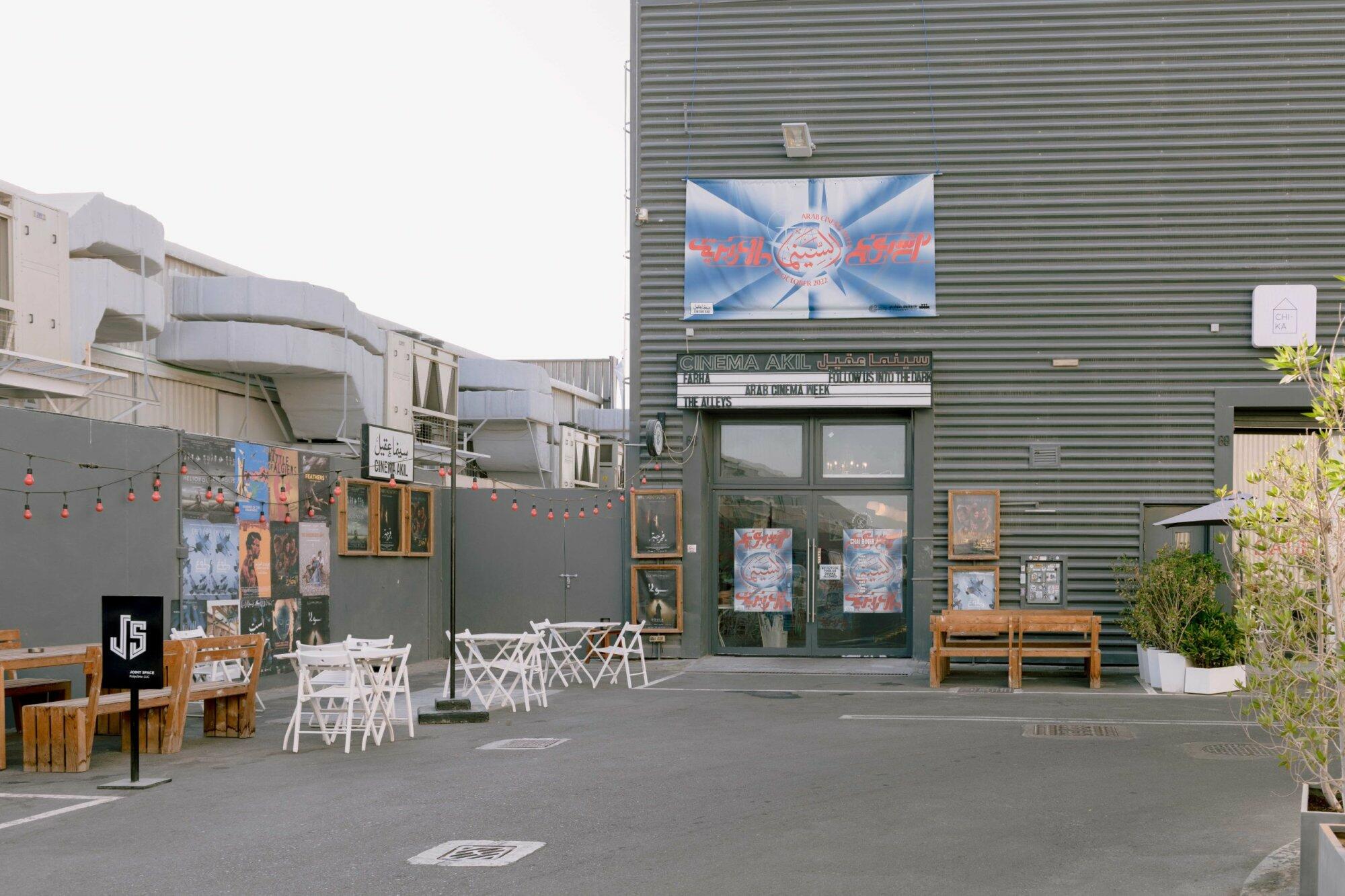
Kazim is no stranger to the industry, having dabbled in the media and television worlds for years before entering the independent film space. “I worked in media and television before I pivoted to arthouse exhibition. I ended up wearing so many different hats in TV and media and also independent production projects,” said the founder of Cinema Akil. “I produced a small film called Letters to Palestine back in 2010 and then I just became really interested in the academics of film exhibition and the politics of representation and cultural politics.” Upon returning to her native Dubai with a Fulbright from NYU, she was acutely aware of the glaring void in the local film landscape, a vacuum that cried out for filling. Hence, Cinema Akil was born, a bespoke cinematic enclave that offers a distinctive moviegoing experience to a discerning audience thirsting for something novel.
“I came back from the US, I really thought it was time to try and build something,” said Kazim. “Build something permanent or semi-permanent, at least that people could take [as] some sort of sanctuary or consistent space. When I came back from pursuing a Fulbright, I was already doing programming and community screenings, public screenings, wherever I could,” she says. “I worked with the Abu Dhabi Film Festival to bring a Dubai edition. I was basically trying to turn every possible screen that I could get my hands on into a community cinema, because I was really not only interested in showcasing the films that I believe needed to have a continuous space outside of film festivals, but also films that look like us, films that carry our stories and our voices.”
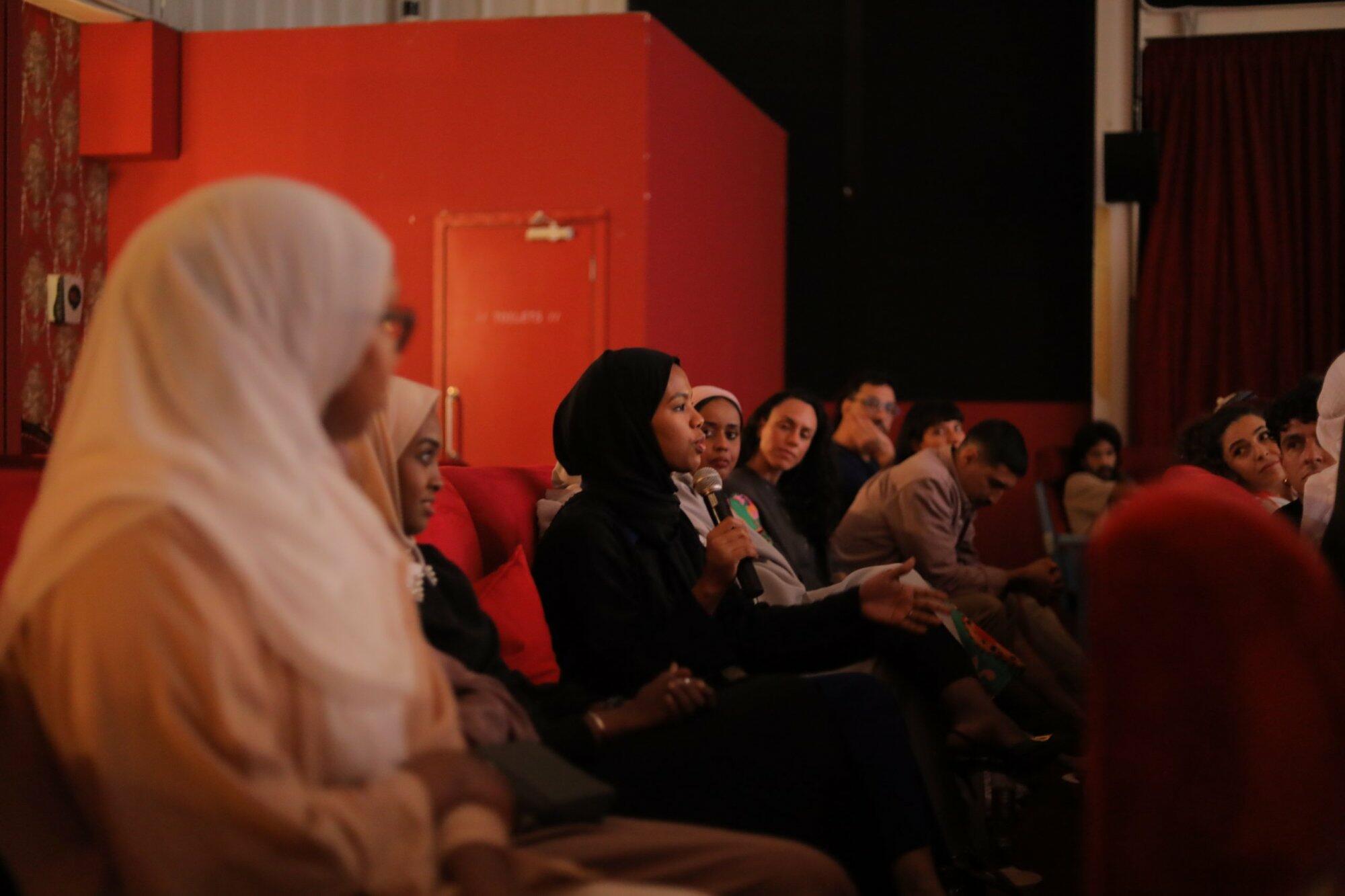
Cinema Akil has carved a niche in the market with its unswerving commitment to diversity and inclusivity. The Cinema hosts regular screenings and events that amplify marginalized voices and underrepresented communities. This includes films that delve into the intricacies of the Middle Eastern identity, LGBTQ+ stories, and cinematic offerings by female directors. “Our Cinema is a part of the network of Arab arthouse screens. It’s sort of a relay network of a constellation of camaraderie,” shares Kazim. “Cinemas from across the region, from Yemen, Egypt, Lebanon, and beyond that, we’re doing the same work and trying to carve out a space in our cities and in our larger region together for these films, and with a very strong focus to bring Arab cinema to the world. But also, from a Dubai perspective, SWANA cinema reflects the kind of essence or the skin of being part of this society and being part of this community. And now, it’s sort of evolving trajectory.”
One notable event hosted by Cinema Akil is the annual “Reel Palestine” film festival, which showcases Palestinian cinema and provides a platform for Palestinian voices. Cinema Akil has also hosted the “Women in Cinema” film festival, which highlights the works of female filmmakers from the Arab world and beyond.
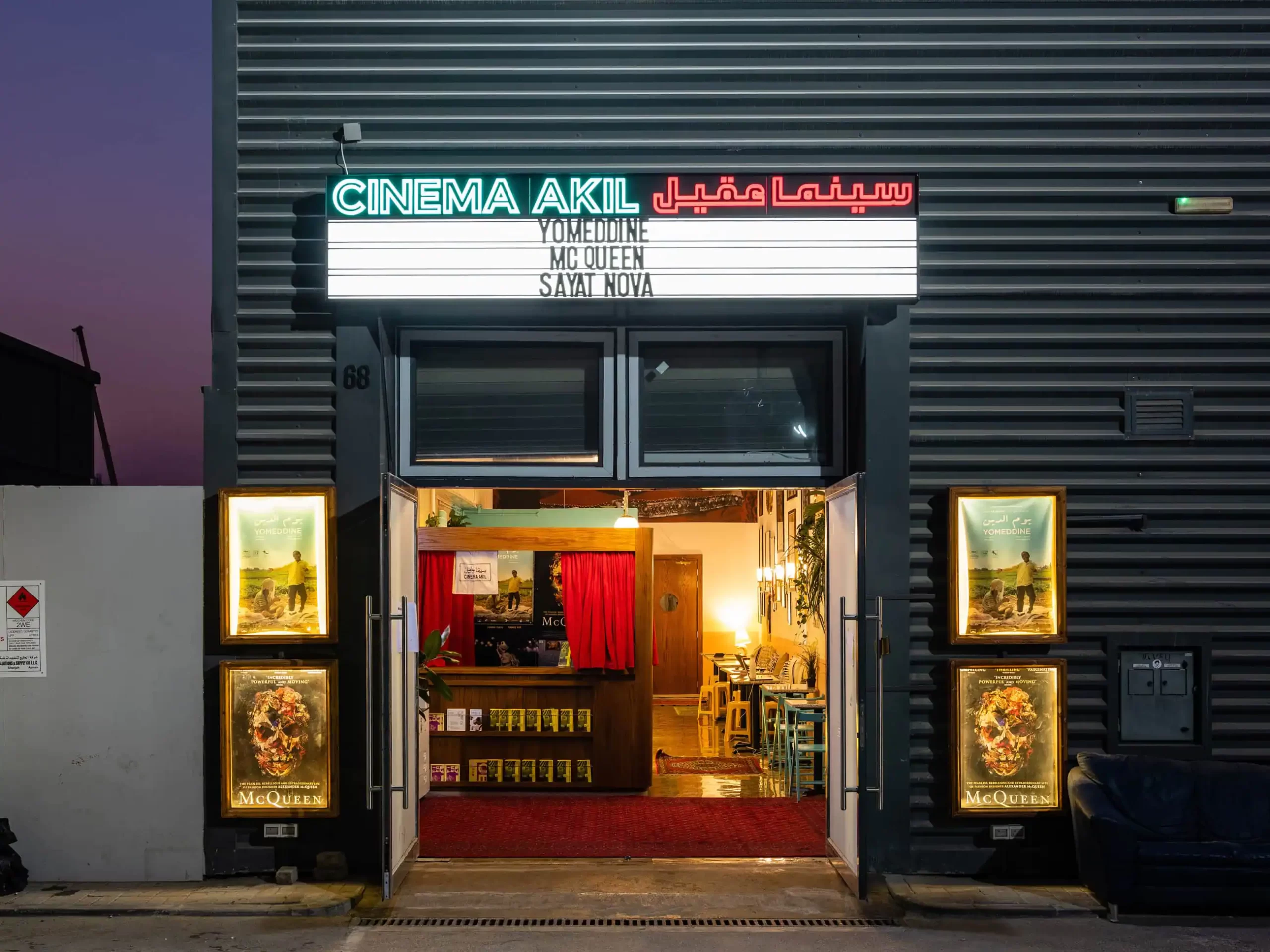
Since its inception in 2014, Cinema Akil has garnered international acclaim for its unique programming and focus on showcasing alternative voices and narratives. From liaising with cultural institutions like the Dubai Culture and Arts Authority, Sharjah Art Foundation, Abu Dhabi Music and Arts Foundation, and the Louvre Abu Dhabi, to organising events that amplify the voices of marginalized groups and underrepresented communities, the Cinema has become a beacon of hope for those seeking a more diverse and inclusive film industry.
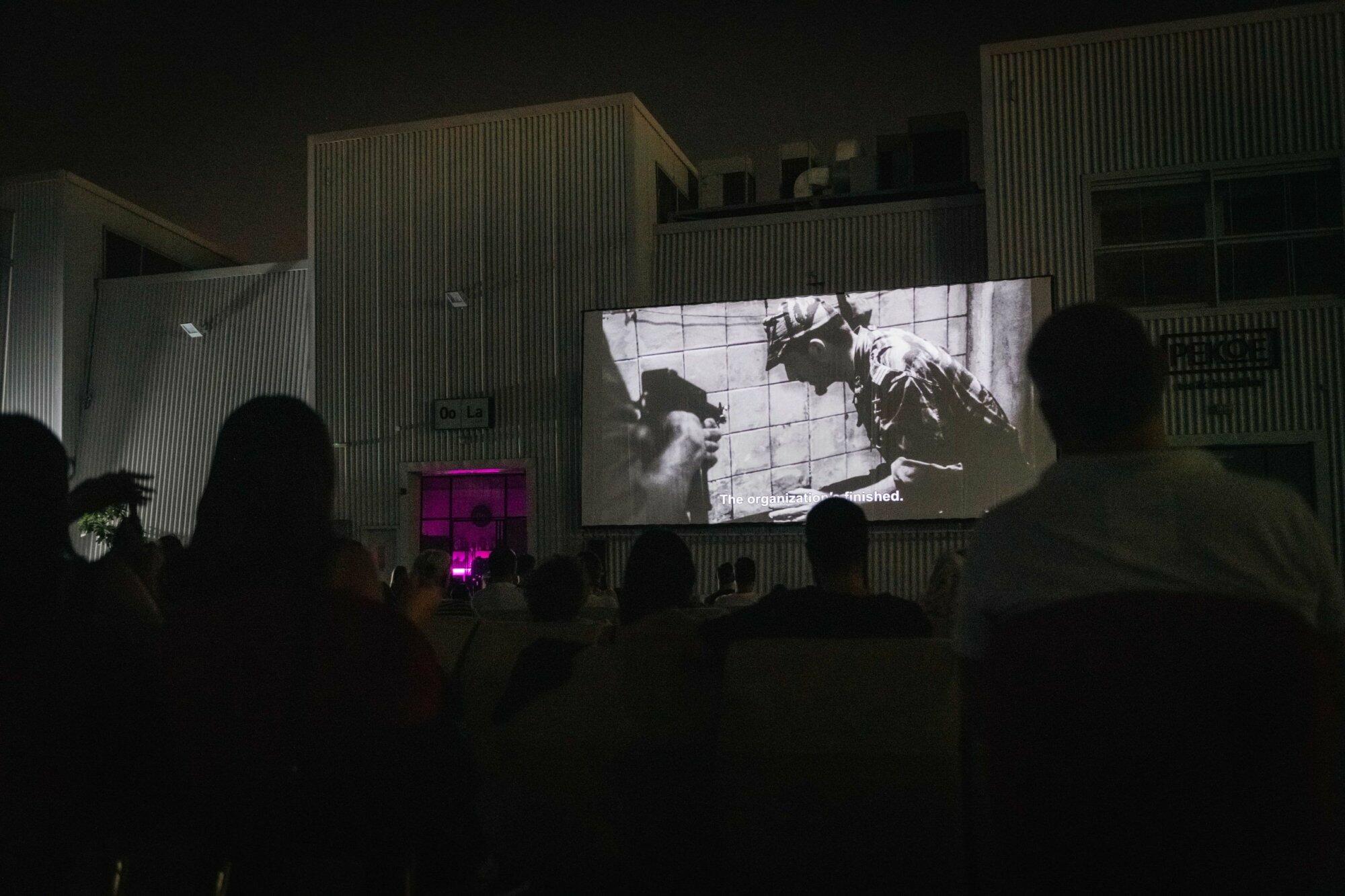
Cinema Akil’s mission is far-reaching, encompassing not just the promotion of alternative cinema, but also the celebration of Arab culture and identity through film. In a world where Western culture dominates the global narrative, Cinema Akil is a bastion of hope, regularly screening Arab films that offer a glimpse into the richness and diversity of Arab culture, granting audiences a chance to connect with stories that resonate with them on a personal level. The Cinema is committed to promoting Arab culture and identity through film and has become a burgeoning platform for emerging Arab filmmakers to showcase their work.
Another pillar of the Cinema’s programming is a consistent interest in cinema of creation and art, including Living Arts, music, visual arts, and the goal of trying to tell a story about what we consider to be art and where the cultural landscape stems from. “A lot of the programming we do is also around raising awareness and literacy in cinema. So we do a lot of classic programming and repertory programming. A big part of this is also trying to, as much as we can, challenge certain ideas of Euro-centricity around what we think of as classic cinema. So presenting classic cinema from different parts of the world, outside of the Western canon, is an important pillar in what we try to focus on.”
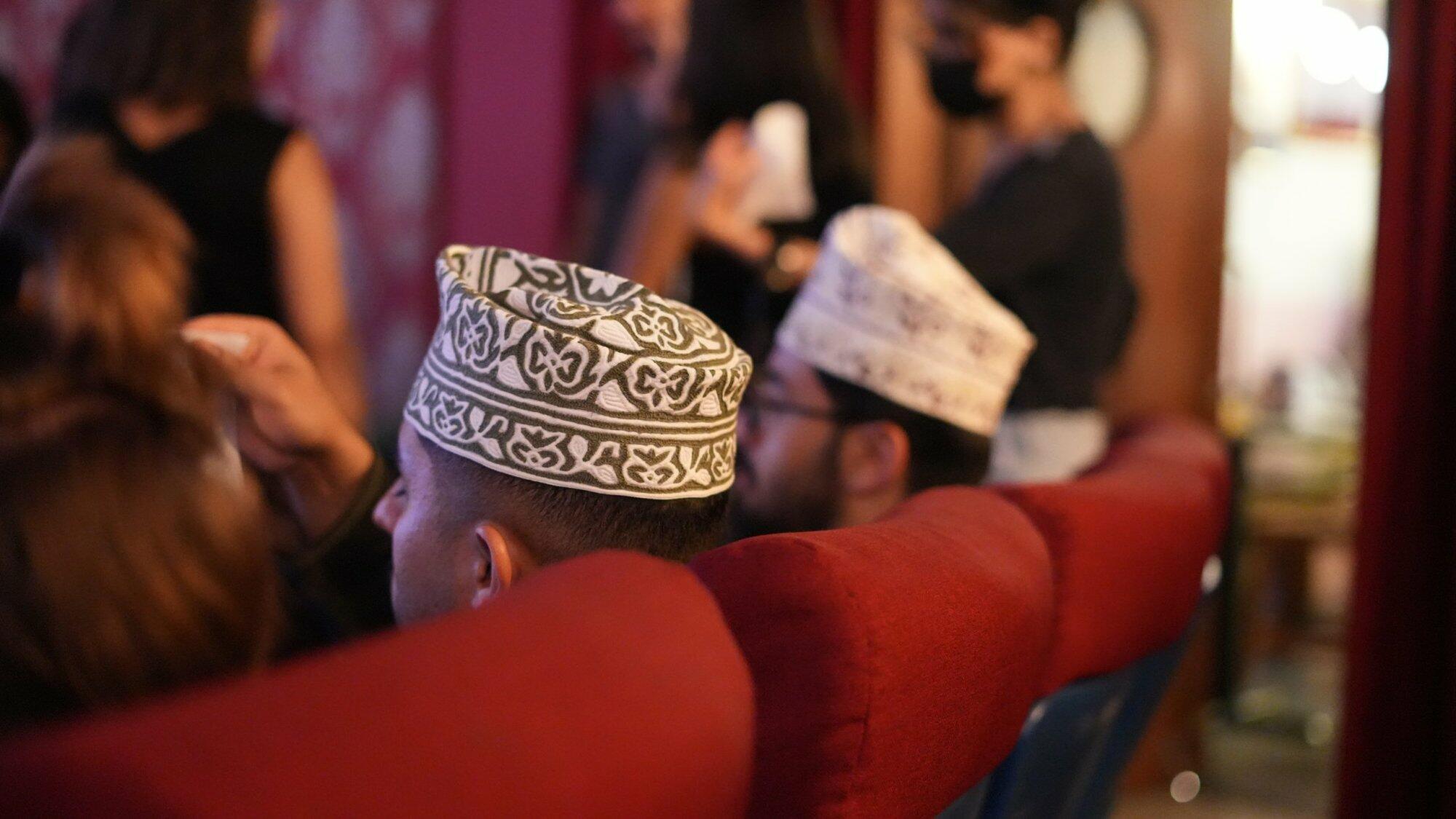
They also consider what would work and what is relevant to the kinds of conversations taking place in the region, “What kinds of things sometimes cinema can help shed light on or bring perspective to in a way that no, you know, symposium or public forum might be able to do,” she says. A major influence on the Cinema’s programming is that it is seen as a trusted selector or curator of cinema that audiences can explore and discover. “And there’s a trust-based relationship that we develop with our community and audience, audience and cinema-goers, over the years that has really been centered around, you know, allowing a certain kind of playfulness and the way that we select at the forefront,” says Kazim.
Cinema Akil is more than just a cinema; it’s a community, says Kazim. The venue has become a melting pot of people and ideas, a space where audiences and filmmakers come together to connect, engage, and explore new vistas. Its intimate ambiance and bespoke programming create a strong sense of affinity between the audience, the filmmakers, and the stories being told. The cozy setting, replete with snug couches, dim lighting, and rustic décor, fosters an inviting and intimate atmosphere, making audiences feel right at home. “The idea was that it would be a space that could be used for multiple things. It’s a place that feels easy and doesn’t have a kind of prohibitive, elitist connotation to it. It also invites you to hang around after whether it’s to contemplate, meet people, or discuss the film of what you experienced together,” she continues. “A lot of, I think, the principle of the design of the space was about coming together and congregation, it’s about a certain kind of safety, I think, which is essential for real, independent, critical, free-flowing kind of programming that we do.”
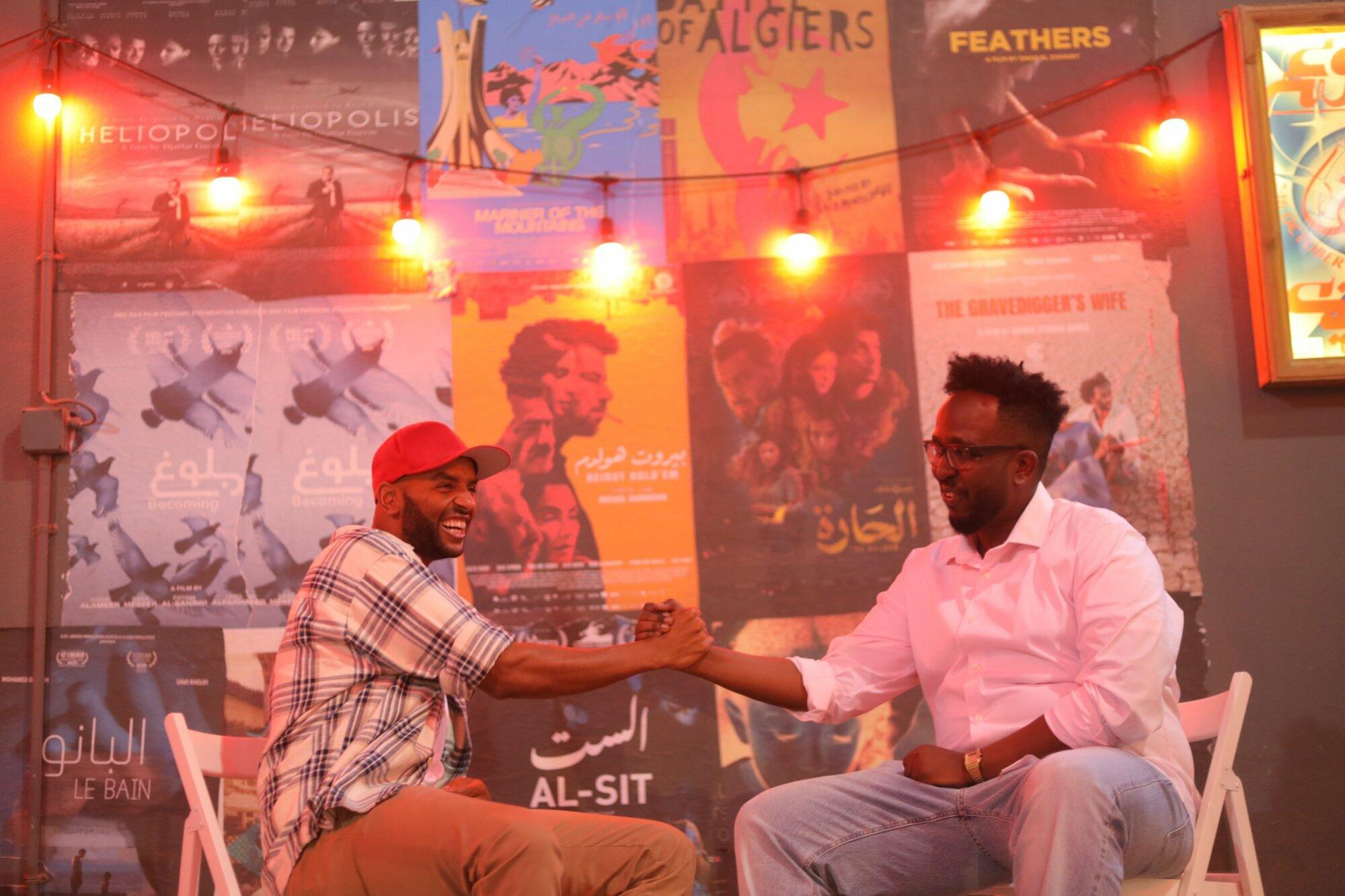
The bespoke programming, meticulously curated by Kazim and her team, ensures that every film shown at the Cinema is a tour de force, one that will leave audiences ruminating long after the credits have rolled. She explains that the space was designed to belong to Dubai, keeping everything loose and mobile, as the budget was not massive. They invited the community to donate unwanted couches and chairs. Imperfection was also a part of the design, as the space was stitched together with love. Many features of the Cinema were made by friends who believed in the project, such as the collage wall that was made by a group including photographers, filmmakers, restaurant owners, chefs, and designers, using clippings from newspapers, magazines, posters, and postcards collected over the years.
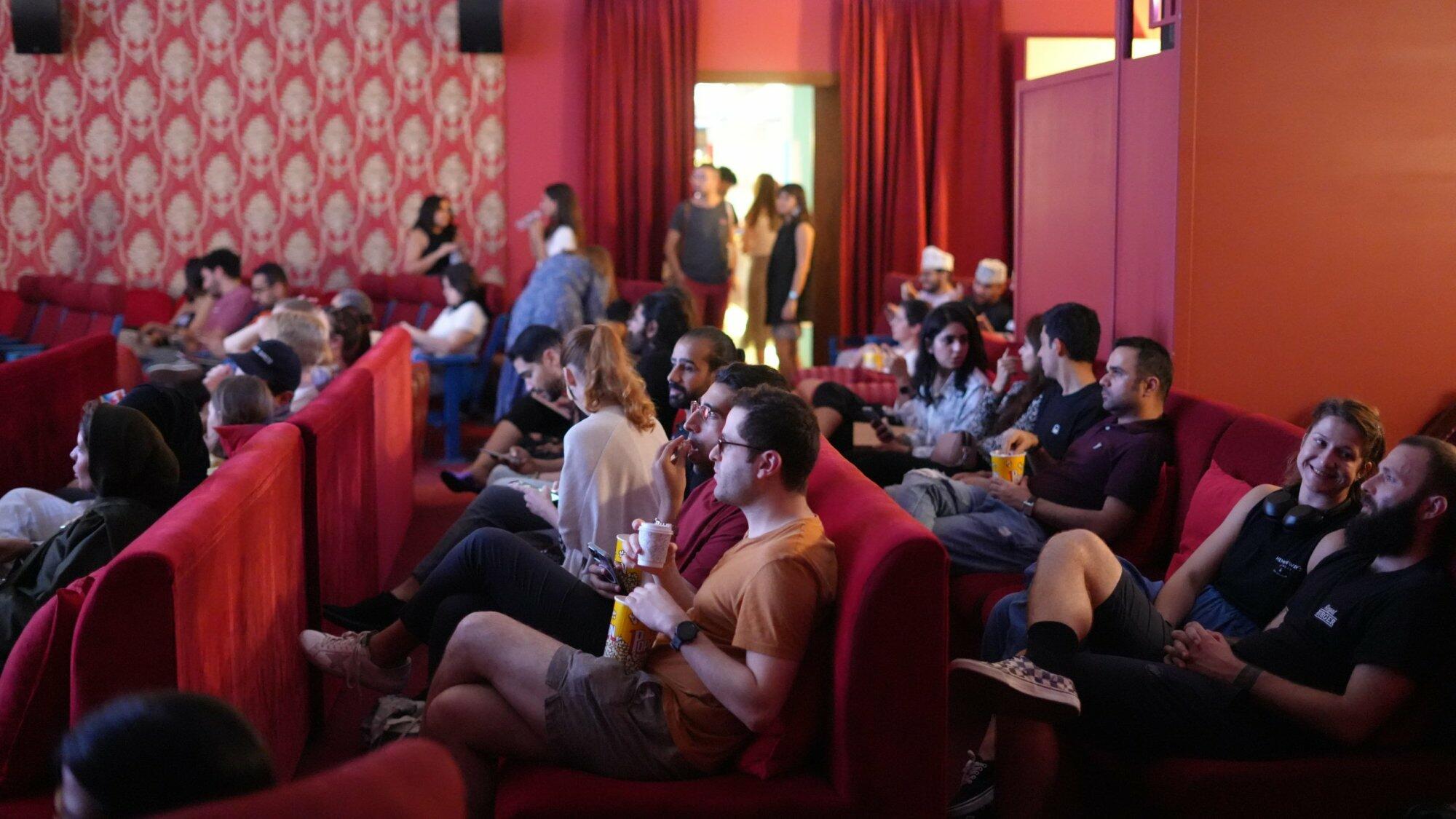
The influence of Cinema Akil transcends the confines of its physical space. By providing a platform for emerging filmmakers to showcase their work, the Cinema is catalyzing the growth of the independent film industry in the Middle East. Its impact is far-reaching and contributes to the creation of a more diverse and inclusive film industry. As Cinema Akil continues to flourish, it remains steadfast in its core values of diversity, inclusivity, and community. Through its programming, events, and collaborations with other organisations, the Cinema is reshaping the landscape of film in the Middle East, one show at a time. Kazim highlights that the common thread of all their programming is a sentiment that is created to speak the language of the spirit and isn’t geared toward commercial goals.
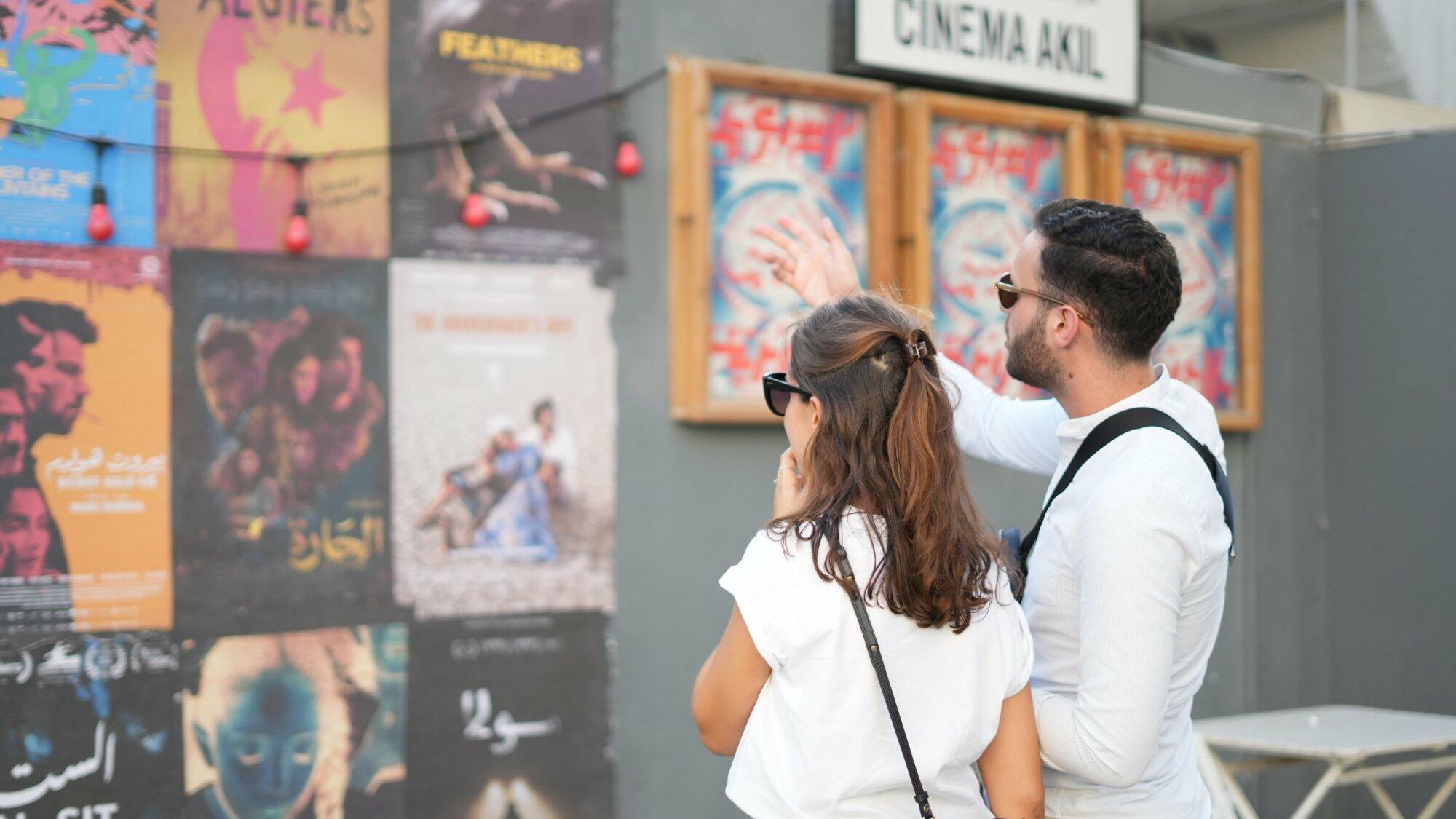
Cinema Akil is an immersive experience, a voyage into the depths of the human condition, where filmmakers and audiences alike can congregate to unravel the complexities of the world we inhabit. Kazim muses, “There’s a kind of cinema that allows you to escape and there’s a kind that allows you to escape into yourself as a process of discovery, and the latter is what we’re somehow specialized in across the board of what we do.”
For more stories about the region’s art and culture, visit our dedicated pages.
